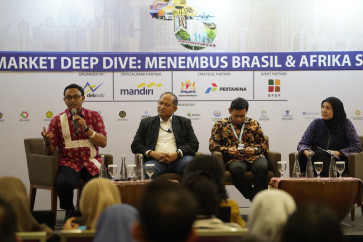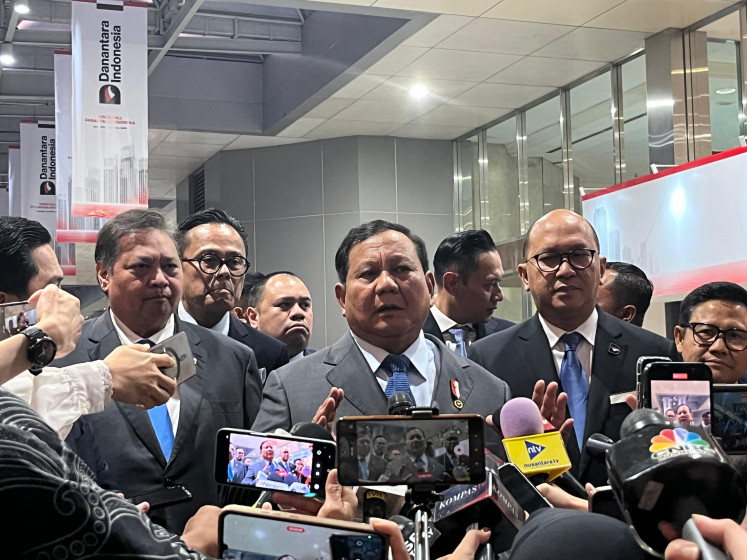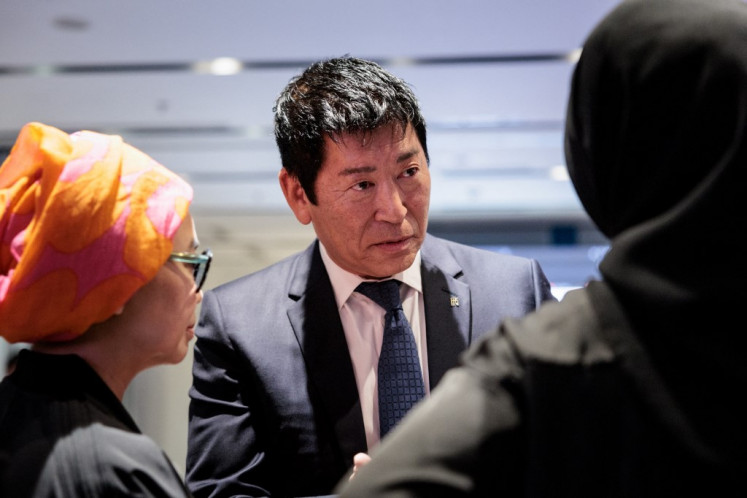Popular Reads
Top Results
Can't find what you're looking for?
View all search resultsPopular Reads
Top Results
Can't find what you're looking for?
View all search resultsAIIB should focus on socially, environmentally friendly projects
The China-led Asian Infrastructure Investment Bank (AIIB) has been drawing global attention
Change text size
Gift Premium Articles
to Anyone
T
he China-led Asian Infrastructure Investment Bank (AIIB) has been drawing global attention. It must be a surprise to many that 57 nations have finally been approved as prospective founding members, including most Asian countries and major powers outside Asia.
It may not be a big surprise that the United States and its close ally Japan are exceptions, largely because the bank is viewed as a rival for the US-dominated World Bank and International Monetary Fund (IMF) and the Japan-dominated Asian Development Bank (ADB). In fact, the AIIB will largely complement rather than challenge existing international financial institutions.
The AIIB, with an initial capital base of US$50 billion, aims especially to narrow the gap. Therefore, it actually should be largely applauded.
Nevertheless, in a saving-face argument, the US gave some high-sounding excuses for its opposition, including a lack of clarity about AIIB's governance, as well as concerns about whether the AIIB will adhere to strict environmental and labor standards in its operations. To put it bluntly, it questions if the AIIB will be transparent and responsible.
No matter whether the US's criticism and concerns are valid or not, the AIIB can positively consider those concerns as a kind reminder so as to aim for the highest international standards. Then, it may be wise for the AIIB to comprehensively integrate environmental, social and governance (ESG) considerations into its business operations and lending practices.
On one hand, the bank's daily operational activities should fully fulfill its corporate social responsibility (CSR) in all ESG aspects, with accountability, transparency, ethical behavior, as well as respect for stakeholder interests, the rule of law, international norms of behavior and human rights.
The bank should adhere to the United Nations Global Compact's 10 universal principles in the areas of human rights, labor, the environment and anti-corruption and follow the International Organization for Standardization's guidance on social responsibility.
Jin Liqun, secretary-general of the AIIB's multilateral interim secretariat, has vowed that the bank will be 'lean, clean and green'. However, it is easy to say but difficult to do.
The bank faces several practical challenges. For instance, can its 'barely suitable for living' headquarters in Beijing successfully attract enough international talents? And can China's socialist culture with Chinese characteristics foster a really diverse and international business culture within the bank?
On the other hand, more importantly, the bank's loan and investment mechanism can wisely adopt the socially responsible investing (SRI) strategy, which seeks to consider both financial return and ESG good.
Infrastructure developments generally have serious negative impacts on both environment and community. Moreover, infrastructure investments in developing Asia usually involve corruption, pollution and human rights abuses. Therefore, the AIIB's success will not only rest on how many projects it can fund, but also how to fund them.
The 70-year-old World Bank has accumulated some good practices, such as declining to fund controversial giant dam projects and blacklisting companies found guilty of collusion, corruption, fraud or coercion.
If the brand-new AIIB wants to do better, it has to be more innovative and decisive in integrating ESG facts. The bank may follow the UN-backed Principles for Responsible Investment (PRI) Initiative, which provides six basic principles for international institutional investors to fulfill fiduciary responsibilities.
And it may also refer the Equator Principles (EPs) to manage the environmental and social risks of its lending and investment activities.
Broadly speaking, the bank together with its clients should comprehensively identify, asses and manage the ESG risks and impacts in a structured way, on an ongoing basis. Meanwhile, the bank should not provide project finance or project-related corporate loans to projects where the client will not, or is unable to, fulfill its ESG responsibilities.
Therefore, how to show the skeptical Western world that this China-led AIIB will run differently, professionally and responsibly, far beyond a simply rich funding vehicle, will be the key to its future success.
______________________
The writer is a senior socially responsible investment analyst based in Singapore.










